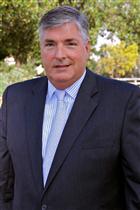
Greetings—
In a recent two day seminar, safely inside from the welcome rain, a cohort of the New Leadership Network focused on tools to facilitate leadership.
It is about listening as much as leading.
The network, created with a pioneering investment in Fresno by the James Irvine Foundation, consists of leaders from all quarters – private, public, philanthropic, education, health, community. The aim is to use a new model of collaborative leadership to sustain a network that can lead a community through change.
Or sometimes to change.
New skills for a new era
Over the past 18 months, members of the network have made efforts to rethink how we approach our work as individual leaders, and leaders in this community. Taking advantage of national and regional experts and cutting-edge disciplines and paradigms, we have plunged head first into new design strategies.
Our agenda for this recent workshop focused on the skills needed to become more effective at facilitating change, both within and outside our organizations. With the help of facilitators from the Interactive Institute for Social Change, we learned that these skills are both separate and sequential, and include:
• the importance of seeing systems
• seeking the maximum appropriate involvement
• facilitating agreements
• inspiring a shared vision
• focusing on results, process and relationships
• discovering shared meanings
• designing pathways to action
As one who has attended multiple seminars over the past two decades, I found these components to be both logical and reasonable - and often elusive to execute. The skills required are both standalone and cultural; collectively aligning them is the driver to a more effective organization. Is that not what we seek as leaders?
Broader skill sets will help meet the challenges
Our purpose in establishing the Center for Community at CVCF emerged from the insight that the local CBO sector, and its public sector partners, play a crucial role in our community. Diverse and evolving populations, the disrupting power of technology, the broadening achievement gap – are all moving parts that leaders are challenged to address.
Effective leadership needs to engage both the head and the heart in ways that motivate and secure the results ambitious plans seek to deliver. The skills noted above are ones that can be taught, reinforced and nurtured. As we launch a dedicated series of workshops and training sessions in our Center, we are committed to building these types of skills and fostering collaboration.
Love of meetings is an elusive trait
On a more practical, but vital level, we were asked- how do we navigate the meeting dilemma? Many senior managers have days filled with back to back meetings, some to communicate, some to learn, some to inspire and some to move forward.
My 30 years of working in the Presbyterian tradition has built a loyalty to our denomination’s creed: things done decently and in good order. We meet not to meet, but to move forward, together. Thinking about the results beforehand helps shape the structure - being clear about the purpose, stating desired outcomes, understanding who is coming and why, what level of decision making is possible, and by whom, are all critical to the enterprise.
Different times, different tensions
Organizational effectiveness, as a field of inquiry, has grown in the past decades. Understanding emotional and social intelligence has become paramount as the workplace evolves from a more hierarchical structure to one with more fluidity. Such transitions can be hard, either because direction is important when there are ambiguities and fast moving changes, or our early training was hard wired into different models of behavior, accountability and leadership.
Command and control worked better in retaking the beaches at Normandy than empowering a more empathetic generation to work effectively in teams. As our workforce now accommodates four generations, if not five, tensions about styles and expectations can be very real, and impede effectiveness.
Learning to lead
As a recent study from McKinsey noted, the transition from fragile to agile is not for the faint of heart. The mindset required includes appreciation for both stability and flexibility. That is especially true as we engage a more broadly diverse set of stakeholders, many with different experiences and expectations, yet who share things in common.
Knowing where we are headed, why that direction matters and having confidence that our colleagues are rowing in the same direction are building blocks for success in our era. That can be reflected as much in a meeting agenda as in a grant, a program or an initiative. If we are smart about it, the agenda reflects and empowers a new level of effectiveness as we move forward to confront the changes we seek. Come join us in this good work.

Comments